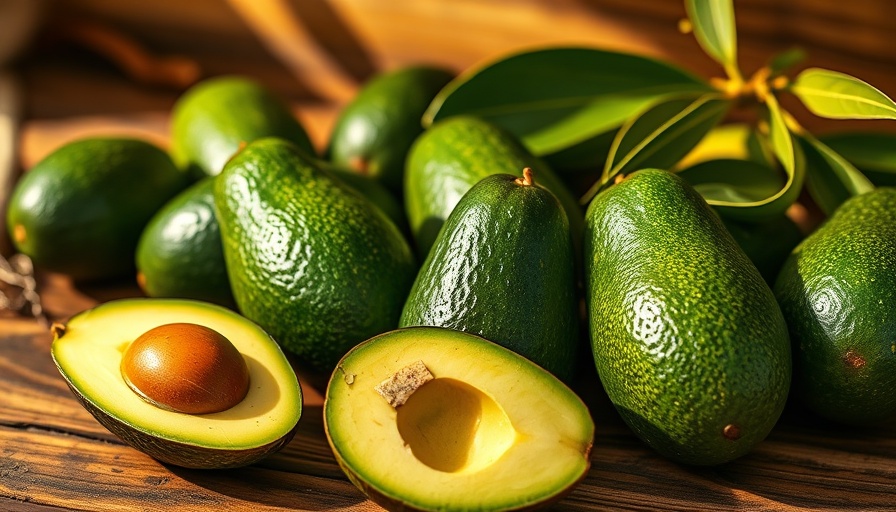
Understanding Tariffs and Their Impact on Avocado Supply Chains
As U.S. companies in the avocado import business continue to navigate the complex landscape of Donald Trump's proposed tariffs on Mexican imports, the impact on both local businesses and consumers is beginning to emerge. With avocados being a staple in the U.S. diet and primarily sourced from Mexico, even a slight increase in tariffs could have significant repercussions across the supply chain.
The Ripple Effect of Tariffs on Grocery Prices
Tariffs, essentially taxes imposed on imported goods, directly influence the cost of groceries in the U.S. According to experts, if the anticipated 25 percent tariff on Mexican imports materializes, consumers can expect a corresponding increase in avocado prices almost immediately. Recent reports indicated that the average American consumed nine pounds of avocados annually, a figure that has tripled since the early 2000s. This rising demand, combined with potential tariff hikes, places immense pressure on restaurants and grocery stores alike to manage costs while maintaining menu prices that appeal to consumers.
Impact on the Restaurant Industry
The restaurant industry, particularly those specializing in Mexican cuisine, faces unique challenges. Owners like Hugo Ortega, a restaurateur with multiple establishments in Houston, have expressed concerns that they cannot inflate prices significantly without alienating customers. As imported ingredients become pricier, restaurants may need to adjust their offerings or substitute less expensive items, which could dilute the quality and authenticity of their menus.
Political Ramifications and Consumer Sentiment
The tariffs are set against a backdrop of political tension regarding border security and drug trafficking, with Trump asserting that these tariffs will serve as a tool in the fight against drug cartels. Even as business figures in the avocado trade sound optimistic about potential market resilience, the worry persists that escalating costs could dampen consumer demand. For consumers, this poses not just an economic burden but also raises questions about the sustainability of their favored foods.
Future Predictions: Will Prices Skyrocket?
Analysts suggest that if tariffs are implemented, they could lead to a repeat of the inflationary spiral seen in previous trade conflicts. The stakes are high—not just for avocado importers and restaurateurs but also for everyday consumers. As the situation remains fluid, the potential for retaliatory tariffs from Mexico could further complicate the picture. Import-export companies should prepare for a fluctuating market and reassess their supply chains to mitigate risks and enhance profitability.
Opportunities Amidst Uncertainty
Despite the daunting landscape, there are opportunities for innovation. Companies can explore alternative supply sources, develop new partnerships, and engage in more transparent pricing strategies to maintain customer trust. The ability to pivot swiftly in ambiguous situations can turn potential crises into growth opportunities.
As we monitor the evolving scenario of avocado tariffs closely, businesses in the trade sector must remain agile and informed. Keeping abreast of political developments and consumer trends can provide the necessary insight to navigate this challenging climate.
If you are involved in the import-export of goods, stay informed about the latest moves in tariffs and trade policies. Understanding these changes can help you keep your business thriving in uncertain times. Subscribe to our newsletter for ongoing insights and expert opinions on global trade trends.
 Add Row
Add Row  Add
Add 




 Add Row
Add Row  Add
Add 

Write A Comment